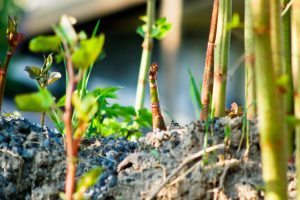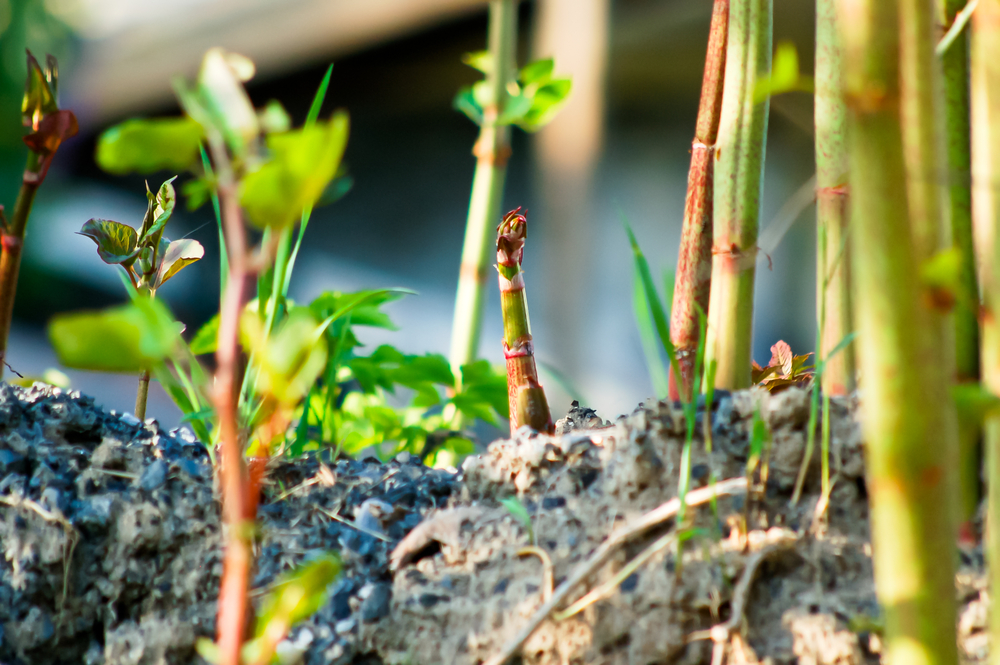An invasive and aggressive weed which can be highly destructive to homes and affects around 5% of the nation’s houses has knocked £20 billion off the UK property market.
 The scourge of Japanese Knotweed has caused a reduction in value of around 10% to the 850,000 to 900,000 UK households affected by this plant species according to Environet UK.
The scourge of Japanese Knotweed has caused a reduction in value of around 10% to the 850,000 to 900,000 UK households affected by this plant species according to Environet UK.
Now there are concerns, as it grows, it is having a serious impact on values, deterring buyers and making homes harder to sell.
Impact on mortgages
Indeed, mortgage lenders will typically refuse loans against properties affected unless there is a professional knotweed management plan in place with an insurance-backed guarantee.
The Japanese Knotweed removal firm, said its own data, along with the results of a recent survey conducted by YouGov, estimated 4% to 5% of the UK’s houses were currently affected – either directly or indirectly, by the blight.
And sellers are required by law to inform potential purchasers if their home is – or has been – affected by the weed, which means it can be a deterrent to buyers even if the infestation has been treated.
Nic Seal, founder and MD of Environet, said Japanese knotweed was ‘the problem that just kept growing’.
He added: “For most people in the UK, their home is their biggest asset and often the ‘pot of gold’ they are relying on in retirement, but Japanese knotweed is having a serious impact on values by deterring buyers and making homes difficult to sell, even if the knotweed has been successfully treated.”
Some recent high profile legal cases where landowners were successfully sued for letting the weed encroach on neighbours’ properties had raised awareness of the problem, and how it can affect homes and their prices.
Indeed, Mark Montaldo of Cobley’s Solicitors, which specialises in Japanese knotweed litigation, said in cases where knotweed had reduced the value of a home, it typically saw claims of around 10% of the property’s value. This was due to the stigma attached to knotweed impacting its future sale price.
Seal added: “Those affected by knotweed should seek to resolve the issue as quickly as possible by appointing a professional removal firm and securing a ten-year insurance-backed guarantee for the work, which can be passed onto a buyer and their mortgage lender. DIY attempts at treatment will usually only make things worse and can even hasten the spread of the plant.”
Protecting from the threat
Anyone concerned about the threat of Japanese Knotweed can take out a specialist indemnity policy through Countrywide Legal Indemnities. Policies start at less than £100 and covers homeowners for the cost of treatment, repairs, legal costs arising from third party claims and any loss of the property’s value if knotweed were to arise.
Knotweed facts
- Japanese knotweed was first introduced into the UK from Japan in the 1850s as an ornamental plant.
- It is number one on the Environment Agency’s list of the UK’s most invasive plant species, described as “indisputably the UK’s most aggressive, destructive and invasive plant”.
- It is rife across the UK with particular hotspots in Wales, the South West, London and the South East.
- The weed is proven to spread rapidly and can push up through asphalt, cracks in concrete, driveways, cavity walls and drains in its quest for light and water.
- It hibernates over winter and emerges in April with purple asparagus-like shoots which grow rapidly to reach up to three metres in height by late summer.
- Japanese knotweed costs UK homeowners and businesses approximately £166m each year to treat.
- The most common solution is herbicide treatment which is applied during the spring/summer growing season over the course of two or three years.
- It can be physically excavated from the ground if the plant is dormant or if the ground is likely to be disturbed by, for example, a development.














